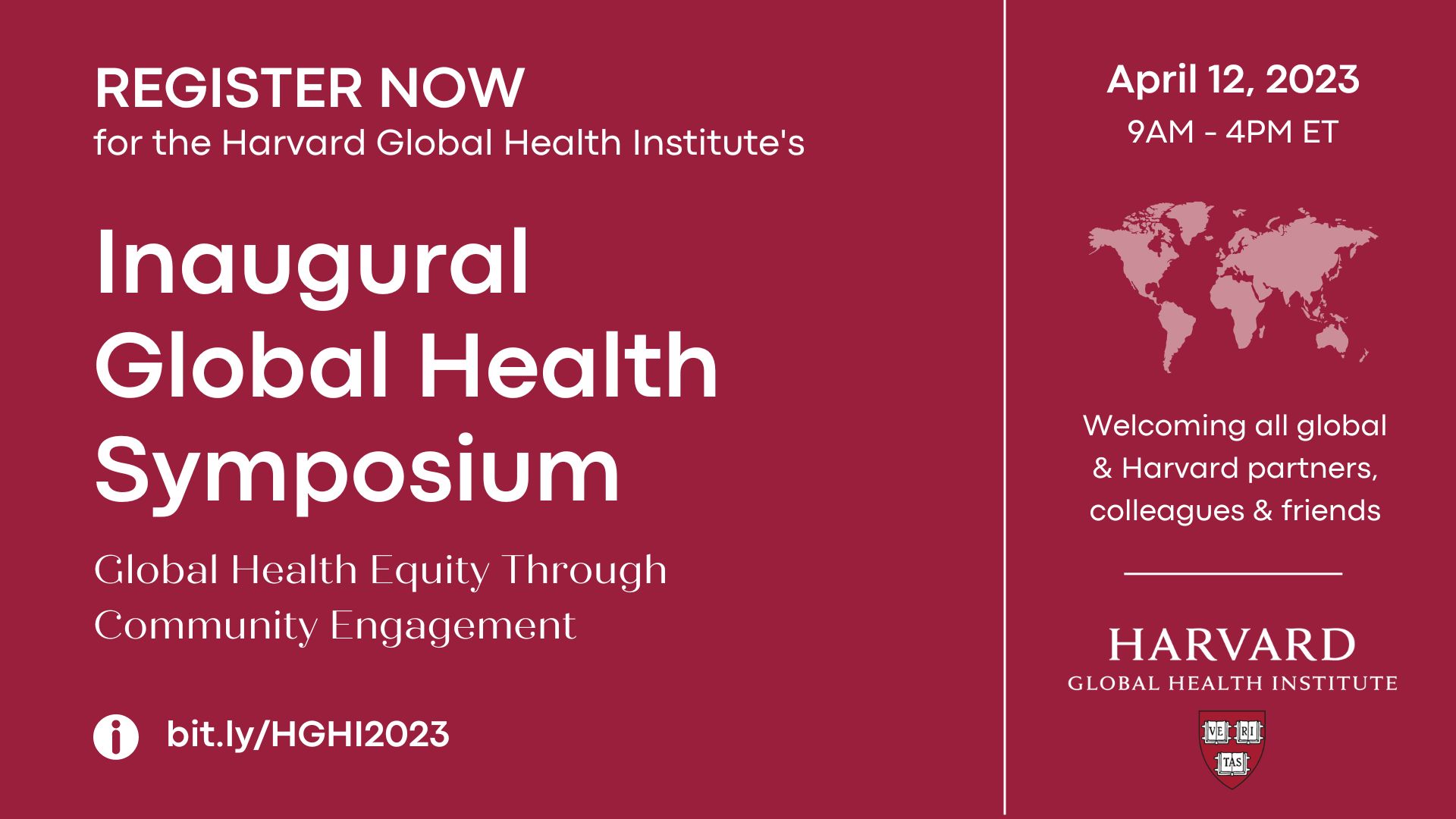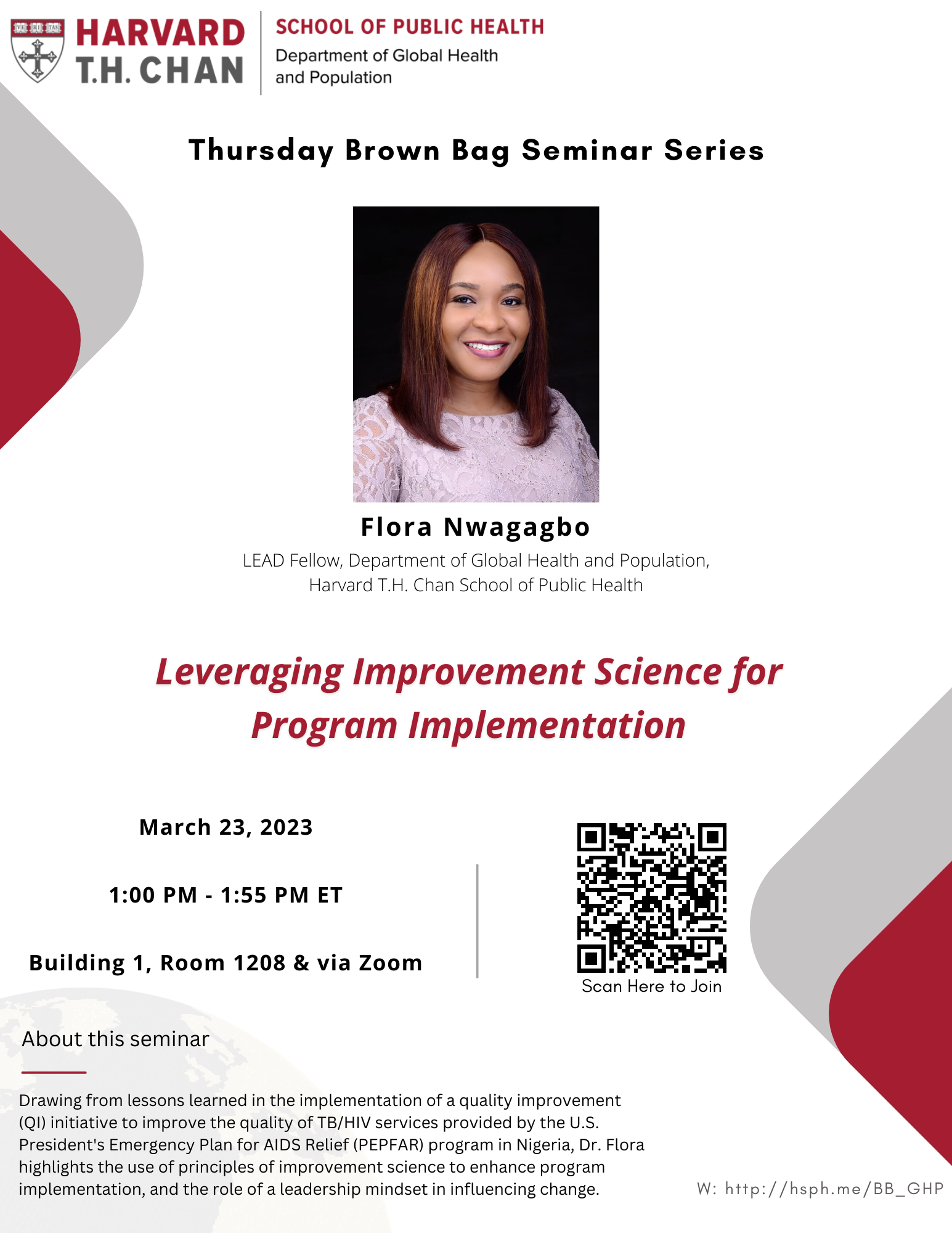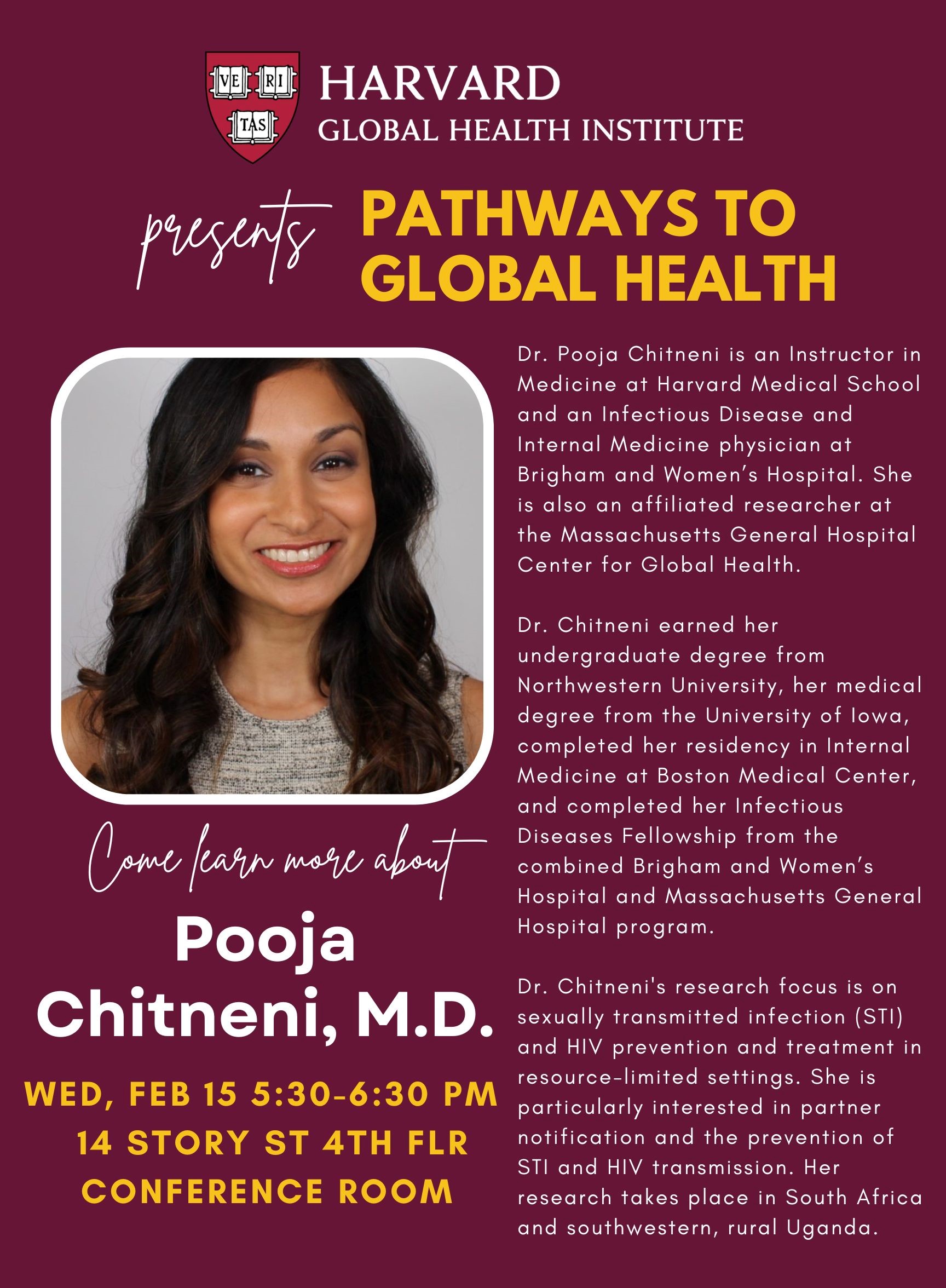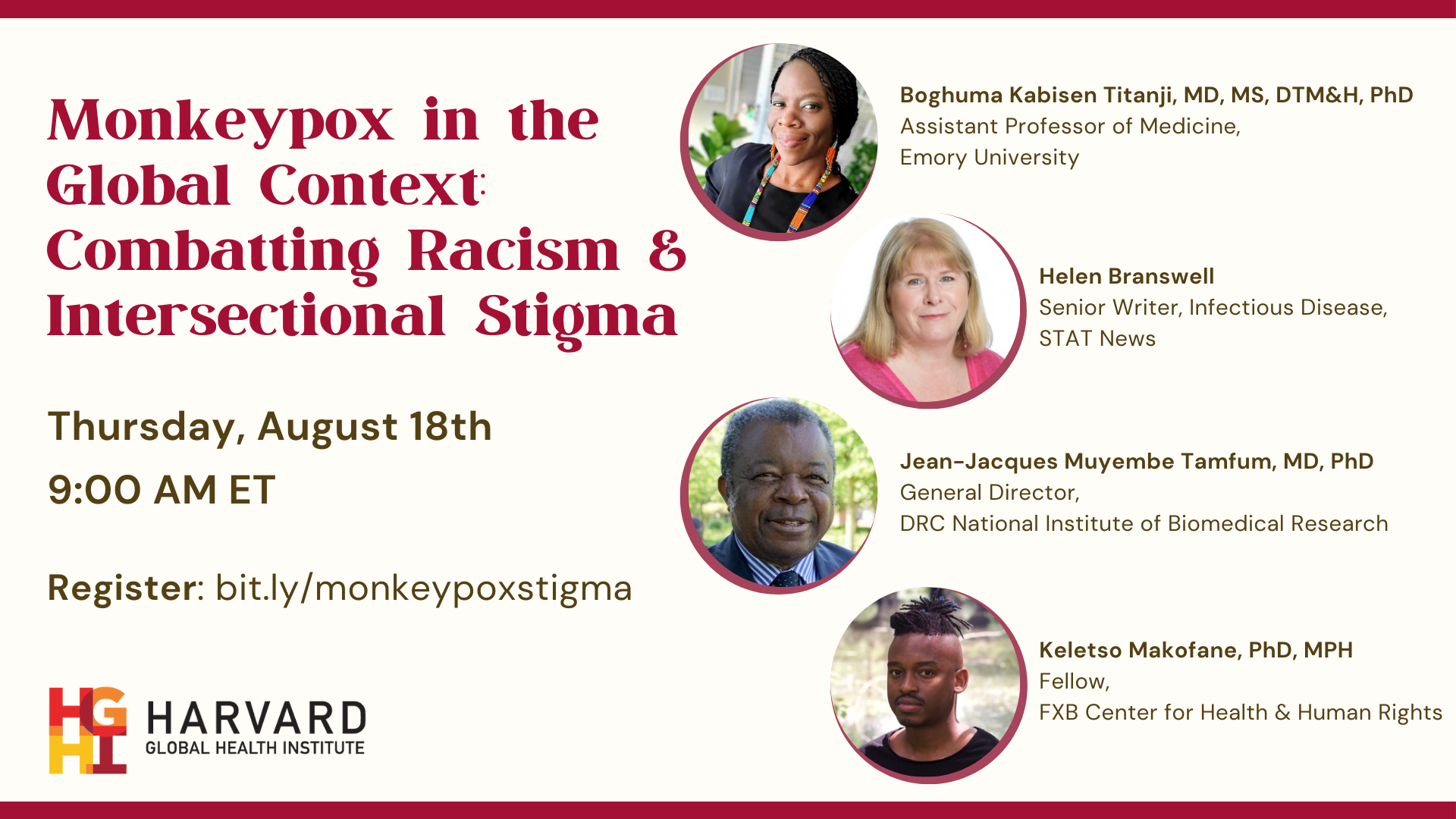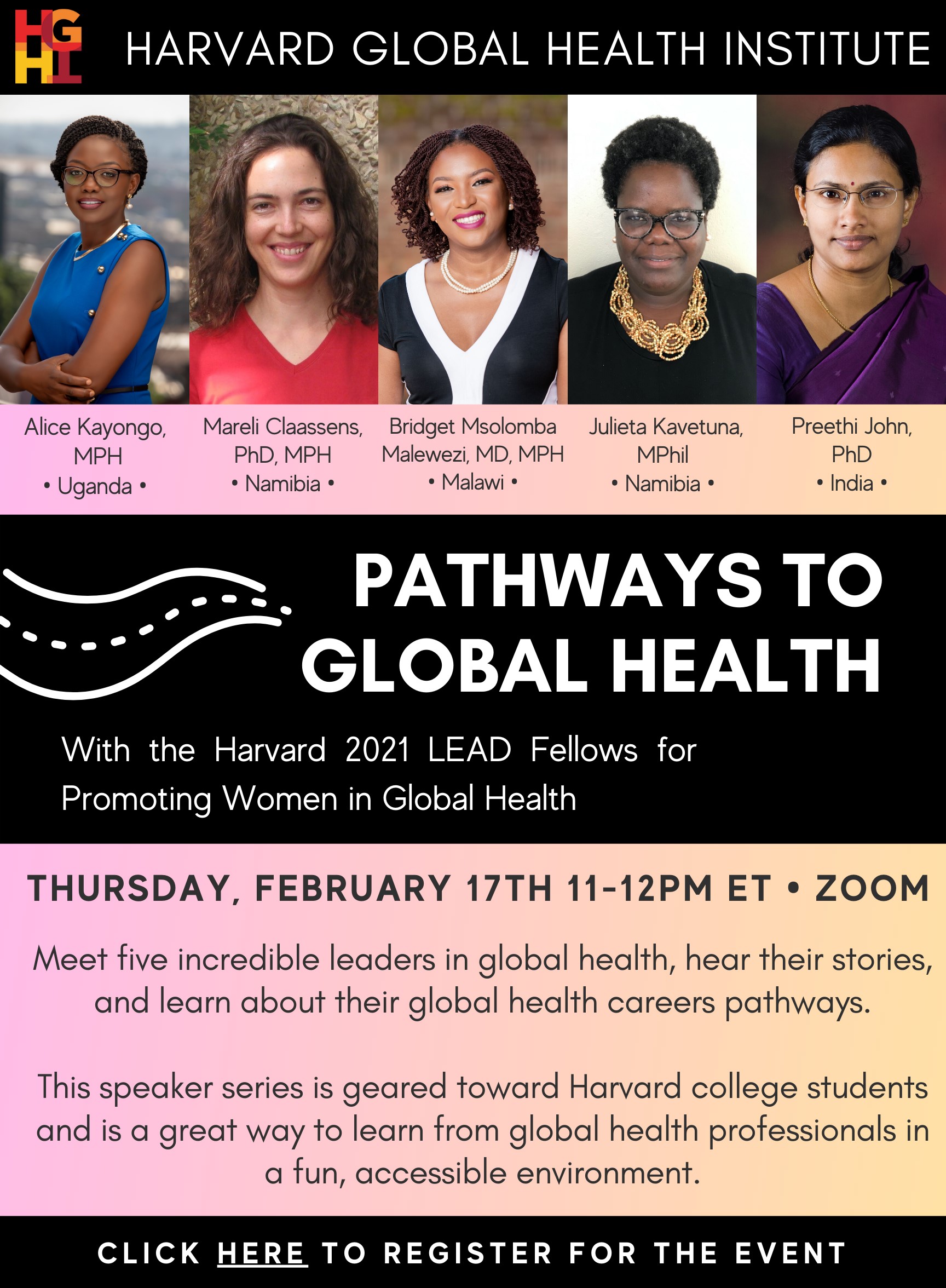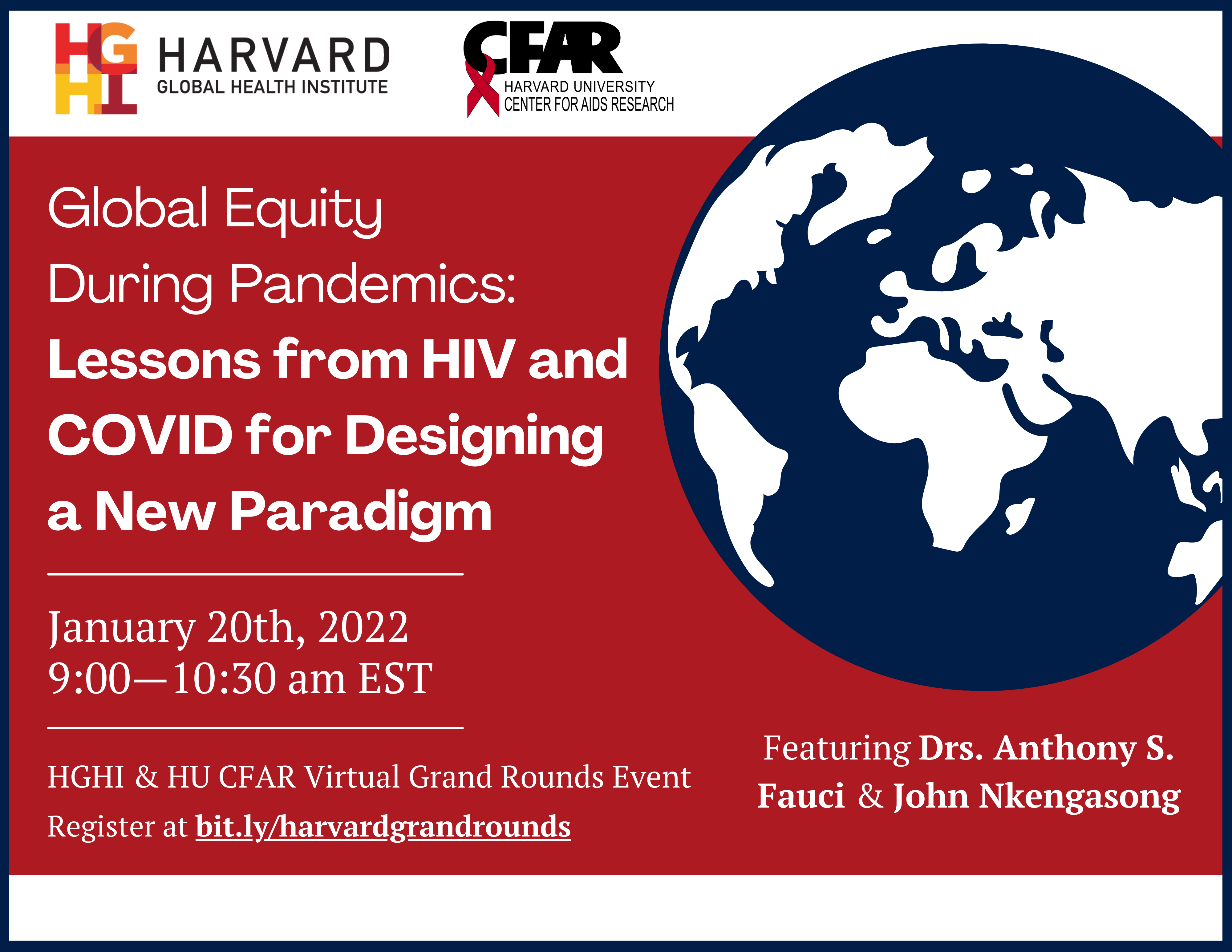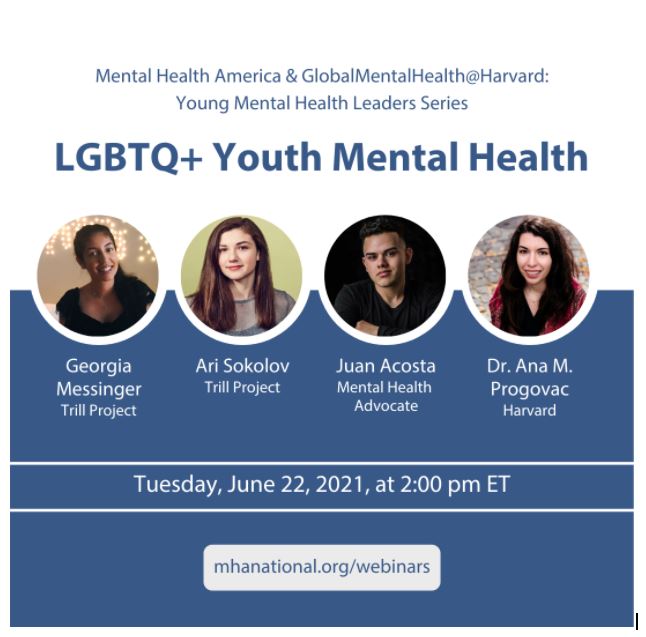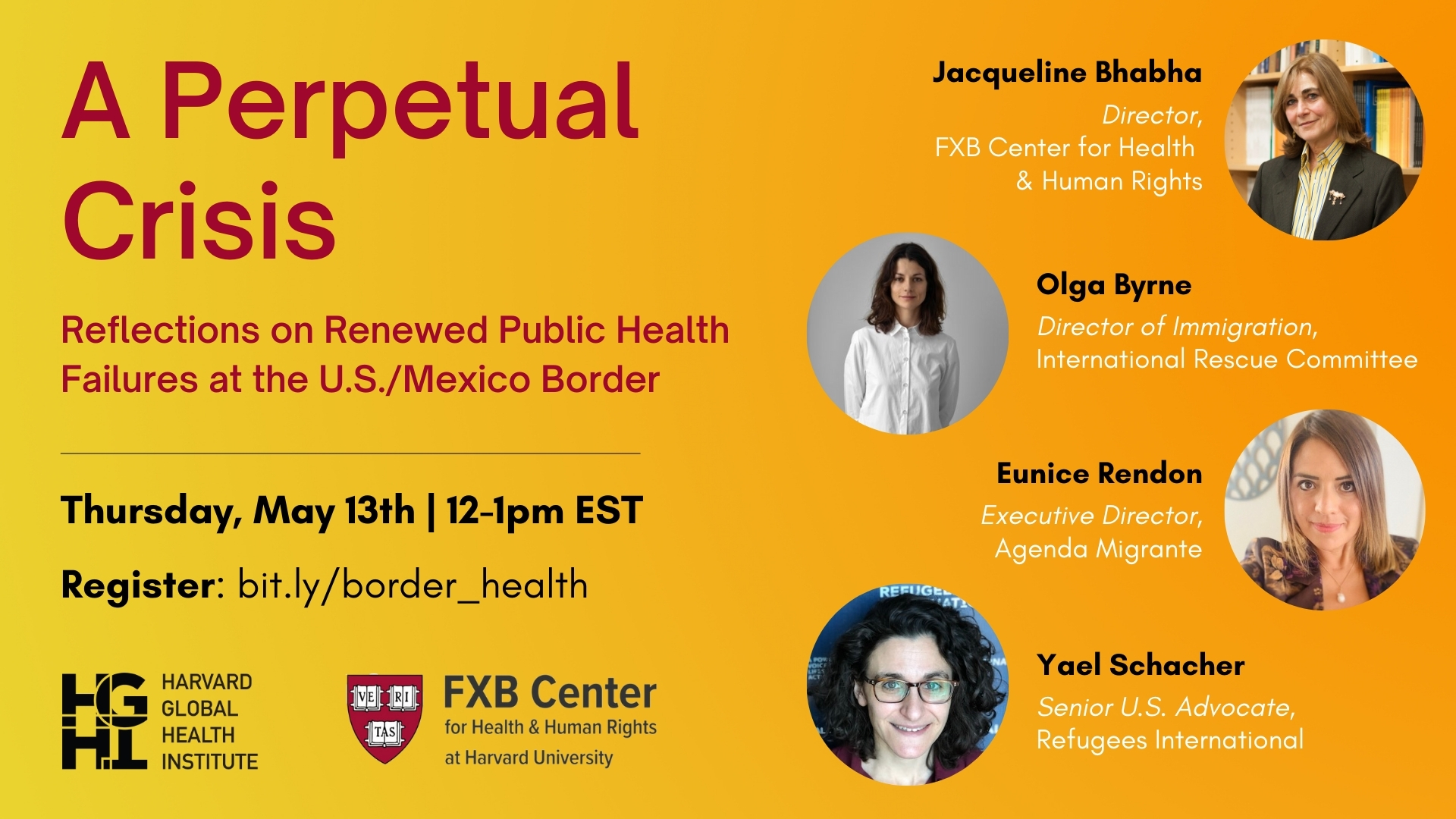Ongoing global Covid-19 vaccine and therapeutic inequities threaten to prolong and exacerbate the pandemic for all countries. As advocates, academics, and policymakers alike call for the U.S. and other wealthy nations to share these lifesaving resources with the world, it is prudent to consider the lessons learned from the HIV pandemic that can be translated into this current moment. PEPFAR and the experiences of HIV health workers offer a roadmap and over 20 years of learnings for implementing vaccine and therapeutic scale-up and delivery efforts in low resource settings. On January 20th, the Harvard Global Health Institute and the Harvard University Center for AIDS Research grand rounds event will bring together members of the HIV research and advocacy communities to critically reflect upon applicable lessons for approaching Covid-19 healthcare delivery and identify necessary steps for a paradigm shift in how the world responds to global health crises. The grand rounds will include a 1-hour panel discussion between leaders of the global HIV response and a 30-minute fireside conversation between Dr. Tony Fauci and Dr. John Nkengasong. These conversations will be oriented towards practical, timely steps that advocates, academics, and policymakers can take to advance equity in this and future global health crisis. Register today to join us for what promises to be insightful and urgently needed dialogue.
Register here!
Panelist Biographies
Ruth L. Okediji is the Jeremiah Smith. Jr, Professor of Law at Harvard Law School and Co-Director of the Berkman Klein Center. A renowned scholar in international intellectual property (IP) law and a foremost authority on the role of intellectual property in social and economic development, Professor Okediji has advised inter-governmental organizations, regional economic communities, and national governments on a range of matters related to technology, innovation policy, and development. Her widely cited scholarship on IP and development has influenced government policies in sub-Saharan Africa, the Caribbean, Latin America, and South America. Her ideas have helped shape national strategies for the implementation of the WTO’s Agreement on Trade-Related Aspects of Intellectual Property Rights (TRIPS Agreement). She works closely with several United Nations agencies, research centers, and international organizations on the human development effects of international IP policy, including access to knowledge, access to essential medicines and issues related to indigenous innovation systems. Professor Okediji was appointed by United Nations Secretary-General Ban Ki-moon to the 2015 – 2016 High Level Panel on Access to Medicines.
Paul Farmer is the Kolokotrones University Professor and chair of the Department of Global Health and Social Medicine Harvard Medical School, chief of the Division of Global Health Equity at Brigham and Women’s Hospital, and Co-Founder and Chief Strategist at Partners In Health (PIH). For over three decades, he has remained a dedicated leader in community-based solution, improving health system infrastructures, and providing equitable, accessible, high-quality health care for low-income countries across the globe. As a medical anthropologist and physician, Professor Farmer has received numerous honors and awards including the Margaret Mead Award from the Society of Applied Anthropology, the Outstanding International Physician Award from the American Medical Association and received the MacArthur Fellowship Award for his interdisciplinary work in medicine and the social sciences.
James Krellenstein is Co-Founder and Managing Director of Strategy & Policy at PrEP4All, where he leads the organization’s research and policy agenda. At 18, James designed and built the first online directory of HIV post-exposure prophylaxis (PEP) providers. In New York, he identified a previously unknown reduction in delivery of critical HIV testing and prevention services and helped lead a successful effort to increase the city’s public health budget by tens of millions of dollars to reverse this. In 2017, James discovered a pattern of alleged anticompetitive practices by the nation’s largest manufacturer of HIV medications, which led to a class-action antitrust lawsuit currently being litigated in Federal Court in San Francisco. James holds degrees in physics, natural science, and mathematics, and has worked as a researcher at the Yale University School of Medicine, the Mount Sinai School of Medicine, and the CUNY School of Medicine.
Fireside Chat Speaker Biographies
Anthony S. Fauci is the Director of the National Institute of Allergies and Infectious Diseases where he oversees an extensive research portfolio to prevent, diagnose, and treat established infectious diseases as well as emerging diseases. Throughout his fifty-year career, Dr. Fauci has made contributed significantly to science from improving our understanding of the human immune response to developing therapies for formerly fatal diseases. He has advised seven Presidents and was one of the principal architects of the President’s Emergency Plan for AIDS Relief (PEPFAR) for which he received the Presidential Medal of Freedom. One of the most cited scientists in history, Dr. Fauci has been a key figure since the onset of the pandemic as a lead member on both White House COVID-19 Response Teams as well as providing trusted medical advice to the public.
John Nkengasong is the Director of the Africa CDC and was recently nominated by President Biden for Ambassador-at-Large and Coordinator of the U.S. Government Activities to Combat AIDS/HIV Globally. In March of 2020, he was appointed as one of the Special Envoys on COVID-19 Preparedness and Response to the Director-General of the World Health Organization. Dr. Nkengasong received the Bill and Melinda Gates Foundation’s 2020 Global Goalkeeper Award for his commitment and contributions to ensuring vaccines and medicines for Africa. Previously, he was awarded, by the US CDC, the Shepard Science Award for outstanding scientific papers as well as the William Watson Medal of Excellence for his extraordinary scientific and technical achievements. Additionally, for his significant contributions to public health, he received the Knight of Honour Medal by the government of the Cote d’Ivoire, knighted by the President of Senegal, and knighted by the government of Cameroon.



